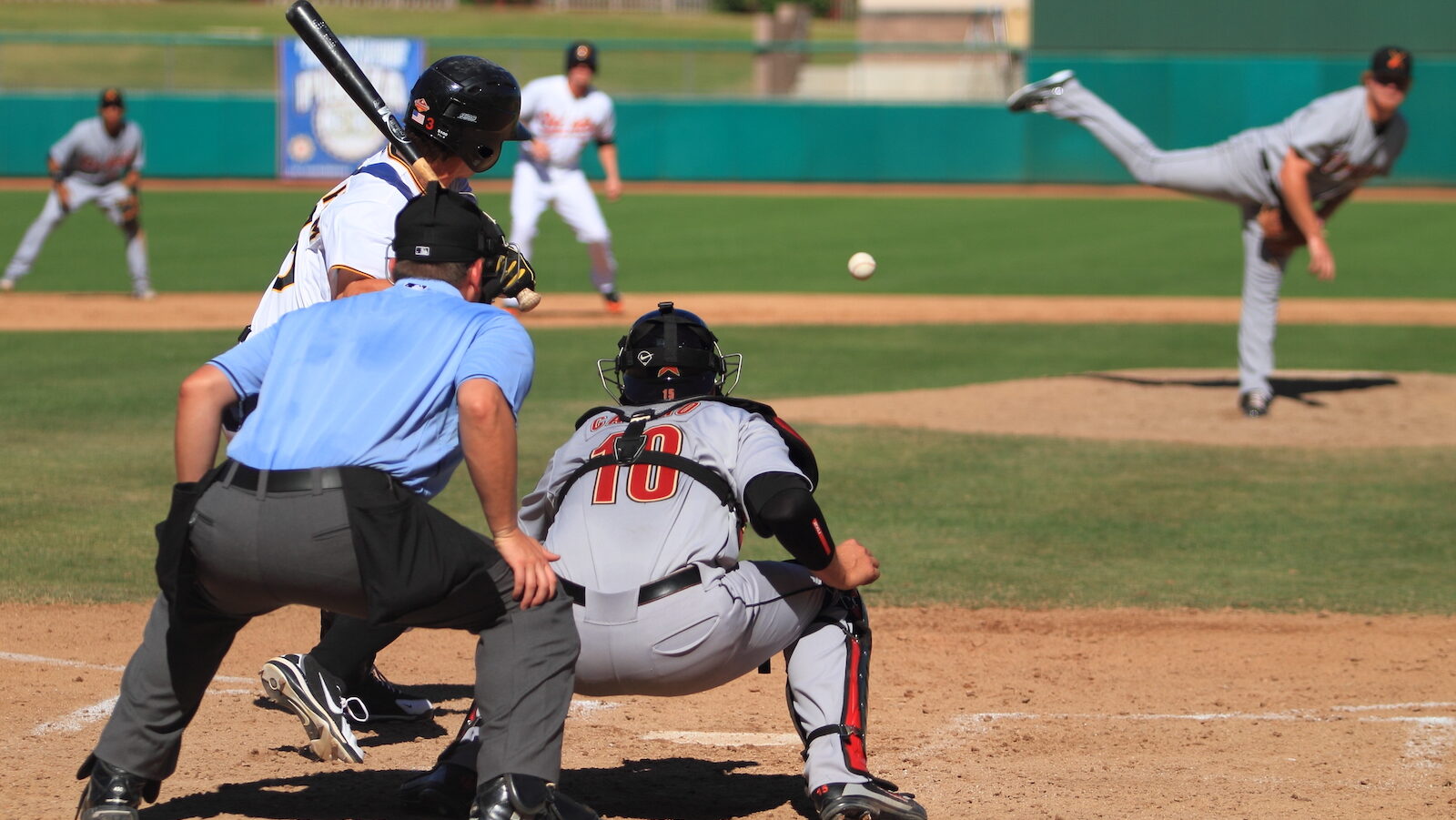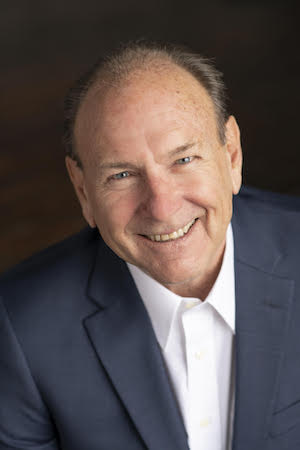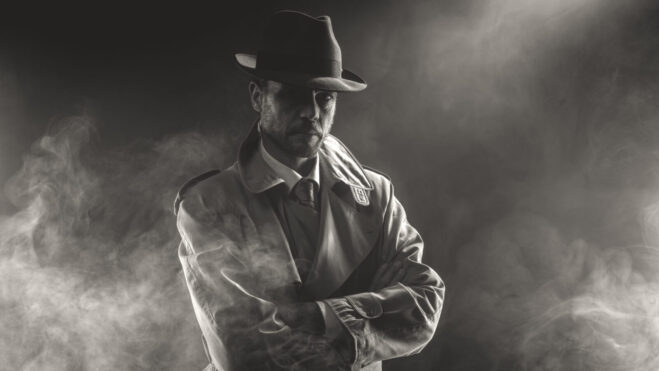Schuetz: The Nevada Gaming Control Board’s Job Is To Call Balls And Strikes, Not To Pick Winners
PropSwap was not allowed to enter the Nevada market for reasons I still do not understand, by an organization past its "gold standard" days.
7 min

It was the mid to late 1970s, and I was starting my third year in the Ph.D. program in economics at the University of Utah. I had passed my qualifying and field exams, and I was looking forward to directing my studies into areas I was interested in rather than following the requirements of the first two years of the program. My time was now basically my time, with the exception that I had to teach a class for the Department of Economics to maintain my financial assistance.
A few weeks before the school year started, I was walking down the hallway of the economics building and came across the department chairman. He asked me if I had much of a background in economic history. I told him I had taken one class in the subject at the University of Nevada, Reno, as a master’s student, and after three lectures, the professor broke his hip. He was then continuously on a status of returning to the class in a week or two, but he never did. There was never a test or assignment other than to read the textbook, and for that effort, I received an “A “as I recall, and I believe the other students did as well.

The chairman remarked, “Perfect. You are teaching the night class on economic history for upper-division students next semester.”
Getting the night class meant that it met once a week for three hours. I didn’t know enough economic history to lecture for 15 minutes. I immediately went to the library and checked out about five books on economic history. For the next 11 weeks, I was basically terrible at trying to fake my way through economic history for three hours, one night per week.
Under the notion that even a blind squirrel finds an occasional acorn, I did learn a few things of interest in teaching that class.
One was about sabots and sabotage. Sabot was a French name for a wooden shoe worn by the poorer classes. During the late part of the 18th century, as the Industrial Revolution was making itself evident, poorer people were being displaced by machines. In resistance, these people would take their sabots and stuff them into the gears of the machines. Given that the sabots were made of Dutch Oak, which is quite hard, this sabotaged the means of production.
The Luddites were somewhat related. I initially learned that the term Luddite was associated with a man named Ned Ludd, an Englishman who was active in the early 19th century and who was particularly adept at destroying machinery. While it appears that there may be some fiction here, the term has evolved as an indication of resistance to innovation.
Tying this all in to gaming …
I was already of the opinion that the Nevada Gaming Control Board was something of a Luddite group, as it continually demonstrated its unwillingness to allow remote signups for sports betting. There is no reason for this whatsoever. It is bad for players because it reduces their choices. Moreover, if they want to secure more options and prices, it will generally work to increase traffic and pollution in the Las Vegas valley because people have to travel about from betting location to betting location. It is also important to note that remote signups are successfully used in betting across the United States.
Bettors like to shop for numbers (prices), and Nevada wants to discourage it. It is truly a policy that is consistent with a captured regulatory agency that could care less about consumers and is busy working to kiss the butts of the operators. Moreover, they are sticking their sabots in the wheels of progress.
I recently thought of both the saboteurs and Luddites when I read through an article by Buck Wargo in CDC Gaming Reports. The article addressed the long-time effort of PropSwap to operate within the Nevada market.
PropSwap is a sports betting ticket reselling operation currently in 23 states. It is a common concept in modern commerce — think of StubHub. In essence, if a person holds a sports betting ticket they no longer want, they can work with PropSwap to find a buyer through the PropSwap marketplace.
This company was not allowed to enter the Nevada market for reasons I still do not understand.
To get the full flavor of what a nonsensical decision this was, I direct the reader toward the two relevant sessions here and here. I must warn you, however, that this will take up almost four hours of your day.
The CliffsNotes version
Allow me to give my impressions of all of this, for I did suffer through the long ordeal of listening to these two sessions twice:
- The Nevada Gaming Control Board is a three-person group comprised of three lawyers. Listening to them, it appears that none of them understand the reality of betting and gambling. Why one would believe that the industry is best served by three people from the same profession is a mystery. This is a foolish mistake on the part of Nevada.
- One of the board members is George Assad. He was elected as a municipal judge for two terms and was sanctioned by the Nevada Commission on Judicial Discipline during his judgeship tenure. He lost his last election, and in a poll by Nevada’s largest newspaper, which asked 115 lawyers, he received the worst rating with respect to whether he should be retained. It is also noted that his son was sentenced to prison for assault with a deadly weapon “after he admitted to stealing $1.5 million in gambling chips from the Bellagio.” It was also Assad who declared the Board had found no problem with a long investigation of Scott Sibella, right before Sibella pleaded to a felony for his actions while heading up MGM Grand.
- PropSwap has been engaged with Nevada since 2015. Kirk Hendrick is the sixth chair they have had to work with. This is but the statistical description of an organization that is fundamentally broken. PropSwap has had to adjust to working with all six of them.
- Chairman Hendrick has an interesting speaking habit. During the May hearing, he stated he is a “big believer in new concepts, a big believer in entrepreneurship,” while he was busy shutting down two entrepreneurs with a new concept. Later, he argued he “is a big fan of free markets” while preparing to stop the entry of a firm that would enhance market efficiency in the betting space. If anyone plays poker with Chairman Hendrick, when he represents one thing, he probably means another. It is really a bad tell.
- Based on my count, he also worries about how this will affect the industry five times more often than how it will affect the consumers. It seems clear from his verbal patterns here and his response to The Washington Post when they inquired about the Wayne Nix/Matthew Bowyer illegal betting/money laundering mess where his response was: “I’m not hearing any response from the industry.” Example after example indicates he approaches his job as if the industry is the client and the customers are basically irrelevant.
- In listening to the questions from board member Assad, it is not clear to me that he has a firm foundation in AML and KYC. He seems to have learned that it is a common thing for regulators to ask about these things to sound official, but the way he responded to how his questions were answered seemed to indicate that he was confused. This comment could actually be spread to all of the Board members in that they are much more comfortable with the law than the reality that the law is to represent. In other words, they appear to not understand sports betting or the role that money and credit play within the casino ecosystem. Board member Assad even seems to believe that the casinos collect people’s tax returns for KYC.
- I am still not convinced that Chairman Hendrick understands PropSwap. It was his suggestion that what he calls “early cash-out” by an operator is a better program than PropSwap. What he is essentially suggesting is that when Chevrolet sells a car, and the person who bought it no longer wants it, he can only sell it back to the Chevy dealer. What PropSwap is saying is they will help you sell your car, no matter where you got it. This is a much more vibrant and efficient marketplace — and much better for consumers.
- After watching the meetings for over three hours, I was very much under the impression that this exercise was part of a settlement agreement between the Board and PropSwap approved by the chairman. It seemed that PropSwap dismissed an appeal with the Nevada Supreme Court in return for fair consideration by the Board in resolving the issues. The problem I have is I never saw anything close to fair consideration on the part of the Board. The May 23 meeting seemed to be a fait accompli, where PropSwap bent over backward to address all of the relevant issues, and the Board just blew them off. When Wargo, in CDC Gaming Reports, used the language of “shoot down” as to what the Board did, he picked his wording well.
Most importantly, the Board seemed to blow them off because the Board members did not see the business justification of the effort. What the Board does not seem to get is that their job is to call balls and strikes, not to pick winners. These are not people the financial community is chasing down to get their picks on businesses to invest in. They are government bureaucrats.
This Board seems to think it is blessed with great business judgment, and it seems to be a recurring theme. From a report by Howard Stutz in The Nevada Independent, when MGM was at a public hearing in Carson City in April 2023 to address an interactive license, Board Member Assad went off on “past and present leadership of MGM Resorts International, saying the casino giant made poor financial decisions and criticized declines in the company’s stock price while he was a shareholder in the business.” It is interesting to note that MGM Resorts International was not even being licensed at this session. The inappropriateness of the comments of Board member Assad was well noted.
There was a time when the Nevada Gaming Control Board was considered to be the “gold standard” of gaming regulatory agencies. Somewhere along the line, however, it seems that it became easier for Nevada to just make this claim rather than continue the hard work to make it real. Now, it seems that they have totally lost the plot. When I am about the world and the term “gold standard” is mentioned, it is normally met with a snicker and is part of a joke.
As I spent numerous hours listening to these two sessions, I concluded that I was watching the Dunning-Kruger Effect in all its glory. This is a degree of cognitive bias in which people with little expertise assume they have superior expertise because they don’t have enough knowledge to know they don’t have enough knowledge.
I have been fortunate to meet and visit with many of the critical personalities who shaped the Nevada regulatory model back in the day, including Ed Olsen, Robins Cahill, Alan Bible, Grant Sawyer, and dozens more. While all of these men were different, they shared an incredible dedication to getting the regulatory piece right. Nevada needs to find a way to restore that spirit.






